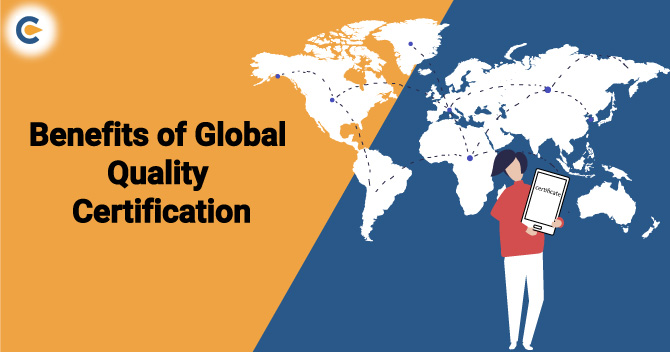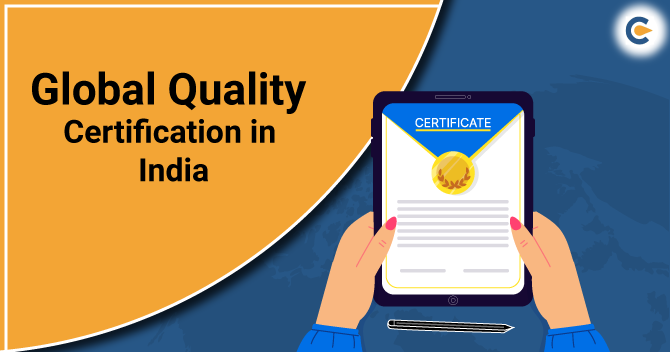Global Quality Certification is an autonomous certification body rendering an accreditation of Quality management systems such as ISO 9001, ISO 14001, and ISO 18001. Apart from ISO certification, GQC also provides various other certifications for different management systems, including QHSE. In this blog, we will explain some prominent benefits of Global Quality Certification.
Reflection of Global Certification Mark
The Global Certification mark reflects the sense of quality through an expression “Food Safety Certified”, “Environmentally Certified[1]“, and “Quality Certified” that indicate the conformity with the applicable standards. GQS has consistently been involved in rendering training and consultancy on each new standard related to quality management.


International Organization for Standardization
The term ISO stands for International Organization for Standardization. ISO is a family of standards that cater to the wide bandwidth of organizations operating in different domains. The ultimate objective behind implementing ISO standards is to downscale the element of uncertainty and inefficiency within the system. A majority of the regulators depend on the ISO standards to revamp their existing regulation.
ISO is an autonomous body, and it continually strives to improve the existing standards so that organizations could optimize their functions accordingly to avail of higher efficacy. Huge competition has led to widespread concern about the quality and safety of the product. To address such a concern, ISO has tweaked its existing standard for maximum efficiency and performance.
An organization that wishes to put inefficiency out of the equation can obtain relevant ISO standards by implementing its policies. ISO standards allow businesses to operate with maximum efficiency. ISO standards are nothing but the dossier of procedures and techniques used to improve the QMS of the organization.
Read our article:A Complete Guide on How to obtain ISO Certificate? Benefits, Penalties and Fees
Benefits of Global Quality Certification
Benefits associated with the Global Quality Certification as given below. Those are as follows:-
Ensures Highest Quality
ISO Global Quality Certification ensures that products and services rendered by the organization are of the highest quality and offer extended service life.
Assurance of the product’s safety
ISO Global Quality Certification renders the assurance of the product’s safety.
Eliminate the overhead cost
With ISO standards in place, the organization can eliminate the overhead cost and unnecessary process to manufacture a product.
Explore the new markets
The prolonged commitment towards ISO compliances can help the organization to explore the new markets.
Assure growth
ISO standards are meant to trigger the growth of the organization.
Financial standing
Improve the financial standing of an organization.
Strong credibility
ISO techniques possess long-term benefits that help the firm to garner strong credibility over time.
Customer audits
Reduce customer audits. Help to pinpoint shortcomings or vulnerabilities within the system that are accountable in inefficiency.
Quality management system
Most of the organization cannot standardize their system and often fails to set up a probing system that can depict hidden flaws. Such a scenario, in prolonged-term, might downscale the growth of the company to a significant level.
Henceforth, to counter such adversity, the company must implement an effective Quality management system based on ISO 9001. GQC can let the management overcome vagueness within the system by delegating clear instructions to everyone.
Rectify disparities
Apart from picking loose ends within the system, GQC can help the organization rectify disparities with predetermined preventive measures. The certification advocates the scope of continual improvement by which management can minimize waste and improve the system’s efficiency.
Improve the customer experience
The ISO process can improve the customer experience by identifying the factors preferred by the customers. It then prepares the process for implementing these factors depending on the customer’s expectations and needs. It can allow the organization to reap benefits by reducing the overall cost of the product. The ISO process boosts employee’s performance by limiting their course of action against the predetermined procedures and responsibilities.
The benefits of Global Quality Certification could be practically endless, and it could render long-term to the organization if appropriately implemented. Moreover, the quality management system doesn’t serve a particular industry or sector. Instead, its scope of applicability is beyond our expectations. The following section will demonstrate the type of quality management system that exists in the current time.
Type of Quality Management System
- AS 9100 certification is referred to as Aerospace quality system standard used explicitly in the aerospace industry.
- CE certification is generally applicable to the electronic products that meet all criteria of EU directives.
- IRIS certification, aka International railway Industry Standard, advocates the deployment of ISO 9001 clauses in existing railway standards.
- ISO 13485 is a Quality management system for medical devices. ISO 13485 advocates implementing a harmonized working framework within an organization to ensure conformity with required standards. The QMS also directs the manufacturers to meet customer demand without exception and consistently.
- ISO 9001 certification is referred to as QMS that facilitates the framework for improving the organization’s efficacy through a systematic workflow.
- NAAC accreditation serves the area of education, and it is founded by the university grant commission way back in 1994. The objective of the NAAC is to provide accreditation to the professional institute and university seeking to provide quality education to the students. NAAC has laid down a set of policies and regulations to harmonize educational institutes’ working to maintain quality without any exception.
- NABH Certification is a component Quality Council of India. It advocates the deployment of quality-oriented policies for entities working in the healthcare sector. NABH was established in cooperation with the Indian health industry and the Ministry of health and family welfare.
Conclusion
ISO standards are meant to establish optimized requirements for the QMS. The manufacturers use these standards to exhibit the ability to cope up with ever-evolving customer’s needs and regulatory requirements. It also transforms the existing QMS into an effective system that can deliver valuable metrics to reflect the system’s performance, thus; allowing management to take necessary actions in the demanding situation.
Implementing Global quality certification is something like optimizing the existing QMS for vulnerabilities. It could be an overwhelming undertaking for the newbies to obtain GQC certification due to the complicated documentation process. Henceforth, hiring an expert is the best thing you can do to command such a situation.
Read our article:Why the ISO Registration Has Creditability in India: Process of ISO Certification











